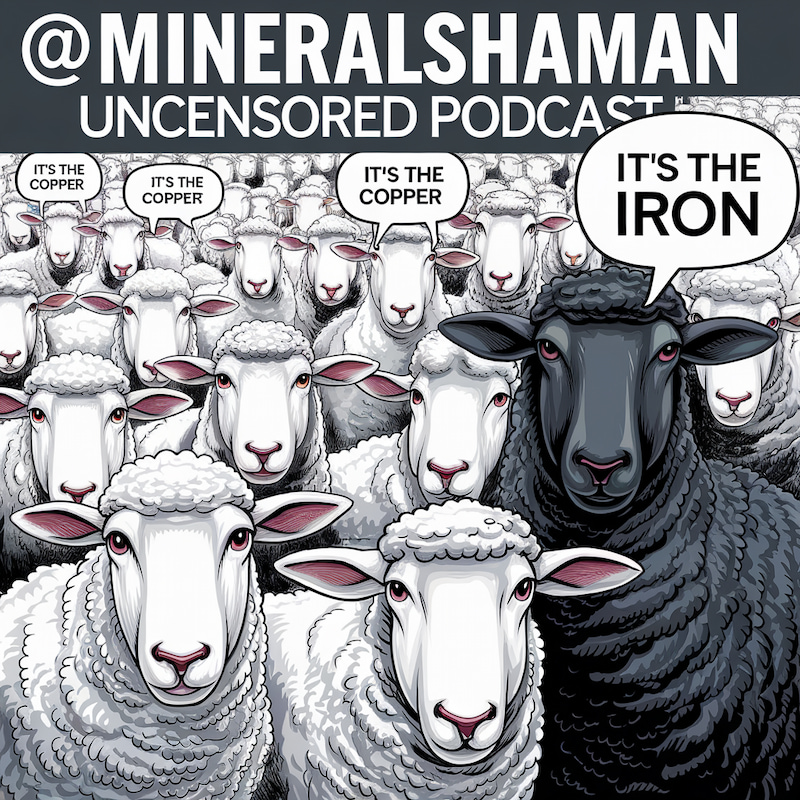Let’s talk cannibis. It is, after all, the plant medicine de jour. In the middle of the Arizona desert, which is where I live, far away from health food stores, or other hippy hangouts, one can usually find a dispensary, and the customers show the entire swath of humanity from youngsters looking to get high, to grandmothers trying to ease their pain.
While the effects of cannibis on consciousness and behavior are well-known to many, its impact on other aspects of health is muddied by myths, conflicting research, and strong opinions. I certainly have my fair share of opinions, but also have been trying to elucidate some of the more nuanced properties of this plant on our minerals for some time. And, it’s not a lack of information that is the problem–it’s trying to make sense of it all. In this article, I will try to make sense of the complex connection between cannabis use, cortisol, copper, and iron.
Cannabis and Cortisol
The first stop along our journey is the beloved cortisol. This steroid hormone, produced by the adrenal glands, plays an important role in regulating metabolism, immune function, and stress response. While cortisol is an essential hormone, excessive or prolonged exposure to cortisol can lead to a range of health problems, including metabolic disorders, immune dysfunction, and cardiovascular disease (actually, just fill in the blank with any so-called “disease” and you could find a link to cortisol if you tried hard enough).
One of the main active compounds in cannabis, tetrahydrocannabinol (THC), can activate the hypothalamic-pituitary-adrenal (HPA) axis, which regulates the release of cortisol and other stress hormones from the adrenal glands. This activation can lead to an increase in cortisol levels in the body, which can have both positive and negative effects.
In the short term, increased cortisol levels can help to reduce inflammation, improve mood, and increase energy levels. However, long-term and chronic activation of the HPA axis can lead to negative effects on adrenal function, including adrenal fatigue or exhaustion. This can result in symptoms such as fatigue, weakness, and a decreased ability to cope with stress.
Additionally, some studies have suggested that chronic cannabis use may be associated with a decrease in adrenal gland function and a lower overall output of adrenal hormones. This may be due to downregulation or desensitization of the cannabinoid receptors in the HPA axis over time.
Cortisol and Copper
Now you are wondering: What does cortisol have to do with copper? One potential effect of increased cortisol levels is a reduction in copper levels. Copper is an essential mineral that plays a necessary and crucial role in nearly all vital physiological processes, including the formation of red blood cells, regulation of iron, energy production, and so many more. Needless to say, copper is something we don’t want to mess with in our bodies. A deficiency in bio-available copper can and will lead to a range of health problems.
The problem is that when cortisol goes up, copper goes down the toilet (literally). Firstly, cortisol can inhibit the absorption of copper from the diet by reducing the expression of the copper transporter Ctr1 in the small intestine. This can lead to decreased copper uptake. Secondly, cortisol can increase the excretion of copper from the body by stimulating the production of metallothionein, a protein that binds to copper and facilitates its elimination through urine and feces. This can further reduce copper levels in the body. Thirdly, high cortisol levels can contribute to oxidative stress, which can lead to the release of copper from tissues into the bloodstream. This can result in an increase in circulating copper levels, but it may not necessarily reflect an increase in copper stores in the body.
Some studies have found lower copper levels in chronic cannabis users. Could it be the cortisol? It’s one piece of the puzzle.
Cannabis and Iron
When copper leaves the body, the inevitable result will be iron dysregulation. Yes, we need iron, but we need copper to manage iron. Without copper, iron is clueless and wreaks havoc on our cells.
Some studies have suggested that cannabis use may affect iron metabolism through its impact on the endocannabinoid system, which is involved in the regulation of various physiological processes, including iron homeostasis. For example, one study found that chronic cannabis use was associated with decreased levels of hepcidin, a hormone that regulates iron metabolism by inhibiting the absorption of iron from the diet and promoting iron storage in tissues. The subjects in this study, mice, also showed elevated ferritin, a marker of inflammation. These changes suggest that chronic cannabis use might disrupt iron metabolism and lead to changes in iron levels and iron overload, at least in these high-as-a-kite mice.
But have these researchers made the link? It doesn’t look like it. To me, the link goes like this: Cannibis raises cortisol levels, which destroys bio-available copper, which leads to iron disregulation.
The Bottom Line
Chronic cannabis use may not be an ideal way to heal underlying illnesses. This is one of the conundrums of the “Medical Marijuana” industry. If cannibis could truly heal, one would not need to take it but for a short while, heal and then move on. This is not what happens, however. For those turning to cannibis as a medicine, it becomes a chronic medicine that is really only alleviating symptoms and may end up being the root cause.
How would we know for sure? We would need robust human studies, which are of little interest to anyone other than me and you. When cortisol, copper, and iron become disregulated you can almost guarantee that magnesium deficiency will follow and numerous metabolic issues will ensue.
Sources
- Cannabinoids and the hypothalamo-pituitary-adrenal axis: potential targets for reducing stress-related disorders. Curr Pharm Des. 2014; 20(23): 4012-4021.
- Cannabis and the Endocrine System. Hormones. 2019; 18(4): 427-434.
- Cannabis, Cannabinoids, and Reproduction. J Assist Reprod Genet. 2018; 35(10): 1775-1784.
- The effect of stress on trace element and electrolyte metabolism. Clin Chem Lab Med. 1999; 37(9): 879-882.
- Copper and iron metabolism in stress and related diseases. Biol Trace Elem Res. 2018; 186(1): 31-42.
- Layé S, Morissette M, Samson C, et al. Chronic cannabis smoking reduces circulating levels of proinflammatory cytokines and metalloproteinase-9 and induces expression of anti-inflammatory cytokines in the lungs of mice. Scientific Reports. 2017;7(1):15688. doi:10.1038/s41598-017-16007-6
- Cannabis and cortisol: Cservenka, A. (2016). Neurobiological Phenotypes Associated with a Habitual Cannabis Use Disorder. Frontiers in Psychiatry, 7, 129. https://doi.org/10.3389/fpsyt.2016.00129
- Cortisol and copper: Linder, M. C., & Hazegh-Azam, M. (1996). Copper biochemistry and molecular biology. American Journal of Clinical Nutrition, 63(5), 797S-811S. https://doi.org/10.1093/ajcn/63.5.797S
- Chronic cannabis use and copper: Kumar, R. N., Chambers, W. A., & Pertwee, R. G. (1976). Effect of cannabinoids on the uptake and release of copper in rat brain slices. British Journal of Pharmacology, 57(1), 145-152. https://doi.org/10.1111/j.1476-5381.1976.tb07757.x
- Chronic cannabis use and iron: Flores, Á., Maldonado, R., Berrendero, F., & Decara, J. (2019). The endocannabinoid system and its role in energy metabolism. Handbook of Experimental Pharmacology, 256, 135-162. https://doi.org/10.1007/164_2019_223






